Training
LRIGS provides value added collaborative and multidisciplinary training in land reclamation. Members will enhance their knowledge of disturbance impacts, structure and processes in ecosystem development after disturbance, and determine how these disturbances can be directed towards a desired land use via reclamation practices. Members will learn how to incorporate biophysical, economic and social values and objectives into development of reclamation strategies. Training opportunities will provide members with an understanding of current world practices and challenges, and will facilitate development of land reclamation professionals and rapid transfer and implementation of reclamation knowledge into regulatory and industrial regimes.
Professional Development
Professional development activities provide program members the opportunity to expand their knowledge and experiences beyond their academic programs and develop important skills for pursuing careers in academia, consulting, industry and government. Those working in land reclamation require the skills to effectively communicate within diverse work teams and with clients, funding partners and stakeholders, to manage projects on time and on budget, and to critical think and problem solve in dynamic environments. Past professional development topics have included leadership, research ownership and copyright, helping colleagues in distress, entrepreneurship, networking, proposal writing, research funding and budgets, professionalism, professional dress and dealing with the media.
Research
Many LRIGS members are actively conducting land reclamation research at the University of Alberta in one of the many faculties involved in this field, including Agricultural, Life and Environmental Sciences, Engineering, Science, Alberta School of Business, and Arts and Humanities. Undergraduate students have opportunities to develop honours research projects or participate in internships. They come from diverse educational backgrounds and countries. Member research encompasses development and implementation of reclamation strategies from micrometre to kilometre spatial scales and from short to long term temporal scales. Members conduct field research on all kinds of disturbed areas, including those associated with energy systems, agriculture, forestry, recreation, urban and other land uses. Members conduct laboratory and bench scale research and simulation modeling in modern, efficient facilities. Field research is conducted on disturbed lands across Canada, internationally and in association with industry and regulatory partners.

